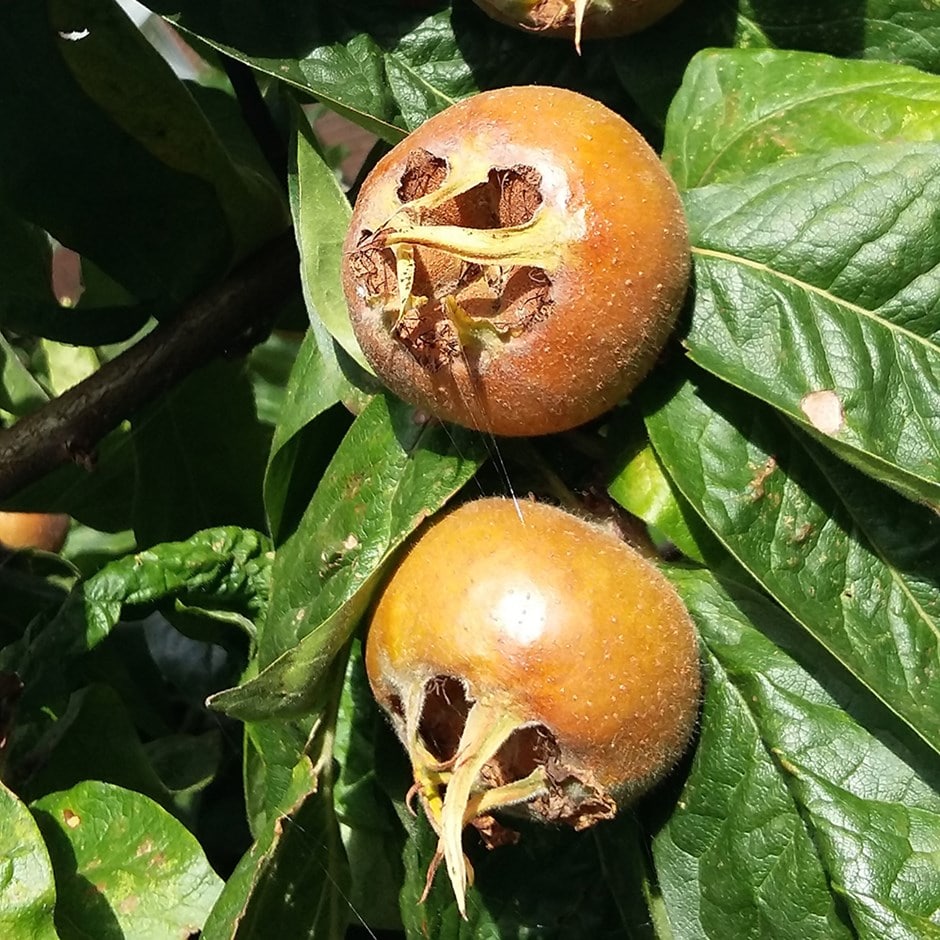medlar 'Nottingham'
medlar 'Nottingham' (syn. Malus domestica 'Medlar Nottingham')
This tree is deciduous so it will lose all its leaves in autumn, then fresh new foliage appears again each spring.
- Position: full sun or light shade
- Soil: moderately fertile, moist but well-drained soil
- Rate of growth: average
- Flowering period: April to May
- Hardiness: fully hardy
This small tree, of great character, may be an unusual sight for you, but it's a traditional English fruit, which was once used to flavour beer before the use of hops. This fruit needs to 'blett' before it is eaten, which is over-ripening to the point of softness, and also makes a fantastic base for fruit jams. ‘Nottingham’ has a gnarled and twisted trunk, which rivals the look of an olive tree, and has been awarded the Award of Garden Merit from the Royal Horticultural Society.
When planting your medlar, prepare a hole up to three times the diameter of its root system. Fork over the base of the pit in readiness, incorporating plenty of organic matter into the backfill and planting hole. Avoiding frozen and waterlogged soil, trees should be planted out as they arrive. If you've ordered a bare root tree, soak the roots in a bucket of water for half an hour prior to planting, or if this is not possible, they can be heeled in temporarily, covering their roots with soil, or potted up. Choose a sheltered spot to protect emerging blossom. Remove dead, diseased and crossing branches while the tree is dormant during the winter months, shortening any overly long branches so they don't droop. After picking the fruits, they should be left to ripen for several weeks until the flesh has turned brown, soft and sweet and can be scooped out with a spoon.

